William Ralph Inge (1860-1954) was Dean of St. Paul's Cathedral, London, England, after World War I. He wrote op eds for the newspapers of the day. In them, he decried the Materialism that was eroding the traditional foundations of Western Civilization. As a result, he was called the "Gloomy Dean." T.S. Eliot (1888-1965), the famed American expatriate poet in England at the time, shared the same worldview as evidenced in his 1925 poem The Hollow Men. When asked why he remained in the Christian Church, given its faults, Inge made the following reply: The Christian Church is like a barn in which the animals make noises, bite each other, foul the air, etc. However, being inside the barn is far better than being in the storm that rages outside it. As I read about the travesty of "gay marriage" - an oxymoron - being imposed by judicial decree in America, I think of Inge's barn and the storm outside it.
The ferocity of the storm is increasing. One of the next travesties waiting in the wings, for instance, is special civil rifhts to mainline transgender cross-dressers. As a result, despite its human faults, e.g. the recent scandal of pedophile priests, the barn, the Christian Church, still remains our best refuge against the sicko storms in the society around it. Conservatives hold that good, healthy social order must rest on a basic moral order. Historically, like it or not, the Christian Church has provided this basic moral order that has supported a sane, healthy social order for America and the rest of Western Civilization. It is a shelter against the insane Materialistic storm that is pulling down healthy standards and seeking to mainline pathology and deviance, unhealthy behaviors that can only destroy what is left of our once-healthy social order. The monk Thomas Merton (1915-1968) restated Inge's insight in his autobiography The Seven Story Mountain (1948). In it Merton explains why he became a monk. "When there is a storm outside, go inside." Yes, when the Materialistic storms rage outside, go inside Inge's "barn."
It - the Christian Church - continues to provide shelter against the insane Masterialistic storms around us. It always has; it always will. Inge knew. Merton knew. We know too. It is one of "The Permanent Things."
Subscribe to:
Post Comments (Atom)

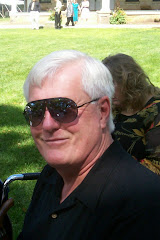



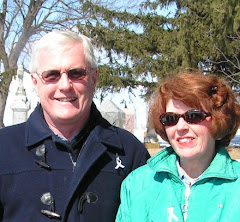



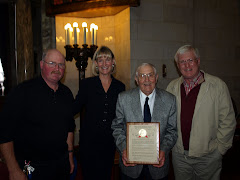

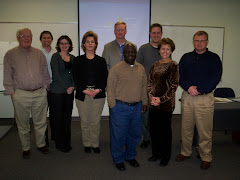
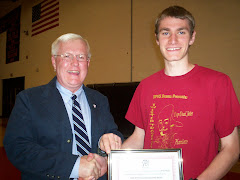
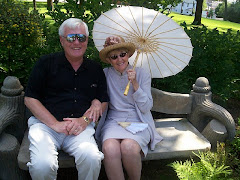

4 comments:
I think our parish priest has a good sense of Inge's "barn" and "storm." He points to the need for "sacred spaces, places." They are refuges from the secular craziness and pathologies that buffet us day in and day out. On my return trips to Mt. Horeb, Wisconsin from Madison, Wisconsin, I often pass through Pine Bluff, Wisconsin, the home of our sister parish, St. Mary's of Pine Bluff. of which our parish priest in Mt. Horeb (St. Ignatius) is also priest. I have stopped for 4 p.m. mass on Saturday, and when I enter the church building I am struck with the grounded peace of those at worship there. It is totally at odds with the chaos outside in the secular world. The church building dates from the 1850s, and the parish has kept it in mint historical condition, which further lifts one out of the present into the eternal. People are hungry for such sacred spaces, places, for whether they admit it or not, they have souls that respond to such nourishment. God has blessed me with a parish priest who has the wisdom to discern and pursue what matters and is badly needed today - more than ever. However, unlike Dean Inge, my parish priest is not "Gloomy." He knows "The Permanent Things" never fail us in the short and long runs. Amen.
At one time, I taught a one-year course on world religions in the high schools of the Province of Ontario, Canada. In it, we explored the Hindu concepts of "Maya" (Materialistic illusion) and "Moksha" (grounded spiritual insight). I believe "Maya" corresponds tothe "Storm Outside" of Dean Inge. "Moksha" corresponds to the "Barn" of Dean Inge. As St. Thomas Aquinas, whom I consider to be my patron saint, pointed out, Truth converges. It does not diverge. Maya, Moksha, Storm, and Barn reflect "The Permanent Things," whether we use Hindi or English languges.
When I was in the seventh grade, I read a book entitled "Give Us This Day." It was about the horrific Bataan Death March in World War II. In it, the Japanese killed and abused American prisoners of war who had surrendered in the Philippines at the start of the War. The author survived the Death March and the horrific imprisonment that followed. He ended up in a prisoner of war camp in Japan, where he was liberated with the end of the War in 1945. On the trip to Japan, the prisoners were jammed into the hold of a Japanese cargo ship. There was no water. Soon prisoners were literally going mad from thirst. In the middle of this suffering, a Roman Catholic priest, a U.S. Naval Chaplain, began to pray the Lord's Prayer. It calmed the American prisoners of war crazed with thirst. The Chaplain kept praying; the prisoners took hope and the frenzy stilled. There was finally one lone voice to be heard in the ship's hold - that of the Chaplain. As he began to repeat the Lord's Prayer again he reached the words "Give us this day" - and died, which provides the title of the book. The author gives a moving picture of the Chaplain's broken body being hoisted with the other dead American prisoners from the ship's hold when it reached Japan - having survived bombing attacks on its Japanese convoy by American warplanes. This story has remained with me since the seventh grade in Portage, Wisconsin. I am amazed now that I at that age could read such books and comprehend them. How many junior high school students can read the newspaper and make sense of it today? I digress. "Give Us This Day" restates the importance of persons who are grounded spiritually in the "Permanent Things" to the health of persons caught up in the chaos around such grounded individuals. They provide Inge's "Barn" - shelter from the "Storm" outside. "Give Us This Day" speaks to me still. It calls me to vocation, to ground myself - and others - in "The Permanent Things" to give them hope in the mounting fear and chaos around us. Yes, "Give Us This Day." Amen. Amen.
My mother-in-law, Mary (Judkins) Tredinnick died on March 13, 2008, at the age of 89 years. At her funeral dinner, I visited with Justin Maslowski, one of her grandsons. I wanted to sum up her life. I found myself calling on Chinese Taoism, which points out that the most valuable persons in society are those with peace of mind. They are the ones who calm others around them and provide the basis for healthy personal lives and societies. Such persons ground themselves in "The Permanent Things." In the case of Mary, her profound commitment to her Roman Catholic Faith provided such grounding. It touched, soothed, and nurtered all who knew her. It provided a "beautiful" death for her. I was there when she died. There was peace in and around her despite her pain. The persons who matter the most are not the ones shouting at us in the mass media or leading parades this way and that. Those who matter most are rooted quietly, firmly in "The Permanent Things." Like the Roman Catholic Naval Chaplain in my previous comment to this post, "Give Us This Day," Mary's prayers calmed those around her. In fact, persons who were sick for example with cancer would ask her to pray for them for her prayers were "powerful." They were. They are. For her family and all who knew her, my beautiful mother-in-law Mary (Judkins) Tredinnick provided shelter from the storms of life. This, I told Justin, was the greatness of your grandmother. She set an example of peacful courage and love. God willing, I hope to live up to it.
Post a Comment